Boost Profits with Trial Gardens
Trial gardens are located in every state and many counties and re-main one of the most underused tools of our industry, mostly because of their passive nature. These wells of information come and go, and most retail nurseries never even know they exist. Part of the problem is that the best times to visit these gardens coincides with a garden center’s busiest time of year, making trials difficult to attend.
By the same token, most trial garden staffers are so buried in events and maintenance that they fail to contact local nurseries and try to forge bonds. It is a little like the old commercial where one person has the chocolate and another the peanut butter, and it is only sheer accident that brings the two together. Coordination is always the hardest part of communication and marketing, but I think the link between trial gardens and retail is naturally pretty strong and needs to be a permanent and continuous bond.
Benefits of Trial Gardens
Trial gardens provide localized performance information on a variety of new crops, many of which may be so new that they are not yet available in your area. Not only can you find out what performs well, but you also have a built-in heads-up on hot items that you’ll want on your benches right away. New crops are your niche market because most of what is new and unique won’t make it into the box stores right away. Most of the big box nurseries have a fairly rigid menu of crops, and for everything new they need to drop an old plant; that takes time time you can use to your benefit. It is a bit like having a few more clues than everyone else on what is going to be hot next year. Are you using these clues?
We all talk about display gardens and their importance in retail nurseries. Well, what is a trial garden if not just a giant display of flowering plants? How many people walk through this display each year? I have a small trial garden in Florida, and we have at least 3,000 people Á pass through our gardens each year. Many other gardens handle 15,000-20,000 people a year, and I guarantee you that these people have no idea where to find the plants they are seeing. Is your name anywhere in your local trial garden as a potential source?
Field days are the missing link between field trials and the retail nursery. When a trial garden has a field day there are two groups of people there who you need to be meeting. The first group is the national plant suppliers and marketers the people who are responsible for getting you and your growers the plant material. We feel very fortunate that we can find the top people in new crops from at least half of the top breeding firms at our field days in May. These are people that cannot stop by every retail operation, but if they only knew about you, they would love to. The second group you need to meet is the consumers. At field days, these people are in an ecstasy of plant appreciation, a feeding frenzy if you will, and all they need are directions to your nursery to use up some of that energy buying plants.
Networking in a trial garden is as good or better than networking on a golf course. As we just mentioned, a trial garden field day will bring you exposure to national and international industry leaders, but it also gives you two more groups to interact with: your local competition and the local growers who supply you with plants. Both of these groups play some role in your profits each year; your competition by taking you to the line each year on hot items and pricing. Knowing who is there and what they are interested in gives you an idea of what they will be carrying next spring. Your local growers will affect your choices in new plant material by whether they have an item ready and in quantity when you need it. At the trial, you can get a feel for what others will be offering next year, and you can also get a jump on local producers by pulling your favorite grower aside and get your spring orders started before the rush. It saves all the confusion of Á the phone call later when you try to remember what you saw, who supplied it and how to arrange everything. At the field day you have supplier, producer and retailer all in one place. How much easier can it get?
Field Trails = New Sales
Here are a few ideas that may help you make your local trial garden a gold mine for new sales.
Before field days. Talk to the trials manager and find out what they are getting in from suppliers. Most of the time that list is pretty much finalized about one week before planting begins. At the University of Florida trial gardens we select our top focus crops for the upcoming year in June of the previous year, so we can ask for these crops early enough to give breeders a chance to plan for our trials. Contacting your trial manager may give you some advance information on what your customers may be seeing and asking for the following spring. You may be able to order early materials that will be in the trials and have some advance hype associated with them. Take that list to all of your suppliers and find out which ones are going to be able to provide you with product.
You may want to host a customer-appreciation day in the gardens or in the greenhouses where plants are being grown before planting. Á This kind of event is like pre-training your customers on what to look for and buy when they come into your store. I think most avid gardeners can appreciate even the saddest little sprouts, especially if they are a sign of spring! Hosting these kinds of events is also a huge loyalty-building device that keeps customers thinking about how wonderful your nursery is for taking the time to plan such an event.
Plan with the trial garden to do some kind of display at the field day. Maybe be a sponsor or ask to be a speaker if you have that skill. Find some way to make sure that your garden center’s name is at that event. Most of the time, there is a big need for displays at field days. Offer to provide some pots and mixed containers, possibly using leftovers from the trial garden plantings, to put a sign on with your name. It is free advertising and at a huge plant nerd event. Even if you can’t be there in person make sure you have displays there with a map and handout telling attendees why they should come to your store for the best plants. At field days. Hey, we are all busy in the spring, but networking opportunities like this don’t come along every day. Make sure to visit during the high point of the field day season and check displays and meet suppliers, breeders, salespeople, allied vendors and everyone else who needs to hear about you. By the time of field days you may already be looking at the tail end of your season. If so, be looking at what still draws people’s attention, and plan on having that available the following spring. Summer- and fall-interest items should definitely be on your radar, as those are traditionally slower sales months.
Promote the field day in your nursery; let people know the dates and speakers. If they heard about it from you, you are the expert. If they go to a trial garden and you appear not to know about it, where is your expertise? If you can spare some employees you may offer them a chance to see some of the bigger names in retailing, marketing and nursery issues. It is on-the-job training, and they can also spread the word that your nursery is a player! You may even want to make up a survey for your customers to fill out when they visit the trials, so they can list the crops they saw and really liked.
After the field day. Make sure that you have a copy of the field trials report and keep copies of it on hand for customers to look at over the winter. Much of what you saw this year will be available in larger quantities next year, so you can start planning with your growers to make sure your orders are in place. If the trials report is too long, make up a short list of the top performers and make the link between trials results and your garden center.
Spend the winter months going over the contacts you developed with sales people. Make sure they know you are looking for new crops and unique items that your customers wanted in the past season.
Check with trials managers for what is coming next year. It can never hurt to have prior information on what the gardens will be displaying in the coming season.
Using the Information
Many field trials are picking up on the importance of container gardens and incorporating a container trial into their field trials. Some are even using mixed container recipes to show growers and consumers how truly unique a mixed container can be, and this is great information for you in planning for next year’s displays and mixed containers. We run both summer and winter trials here in Florida so we can try to expand the winter market for color and not rely on pansies and violas for everything. Sales of nemesia and diascia are going up in our local retail shops, and they have taught us about primula and traditional perennials that can be grown if the timing is right. It should be a two-way street of information exchange; if it is not for the information and the education then the only purpose of a trial garden is for marketing!
Don’t waste the opportunity to use the biggest display garden in your area. It doesn’t require watering, weeding or care, but it can act as a source of sales throughout the year. It is not only your learning experience but the classroom for your consumers, and it is specialized for your market area. The only effort it requires of you is maximizing on the returns to your business and capitalizing on the connections it can bring you.
One last note, don’t stop with trial gardens; if you are lucky enough to have a botanical garden or strong public garden in your community, make the same connections with them, and try to build contacts that allow you to know what they will be promoting each year.


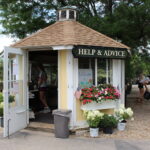
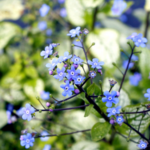


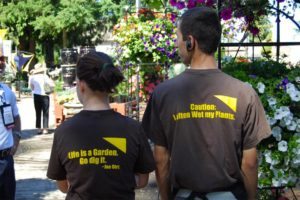
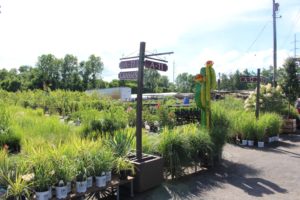

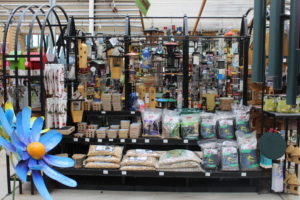
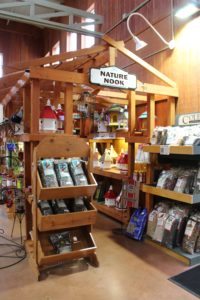
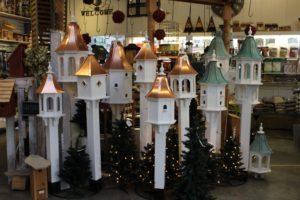
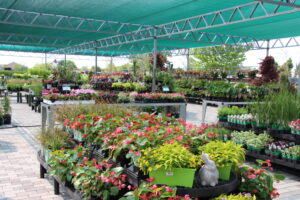
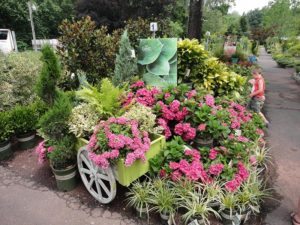
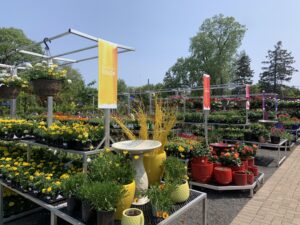
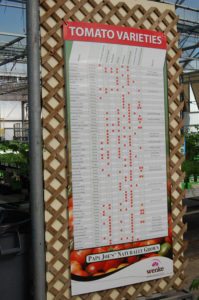
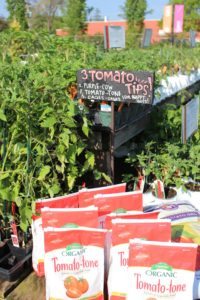
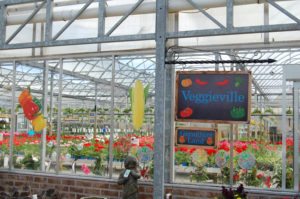
 Videos
Videos





